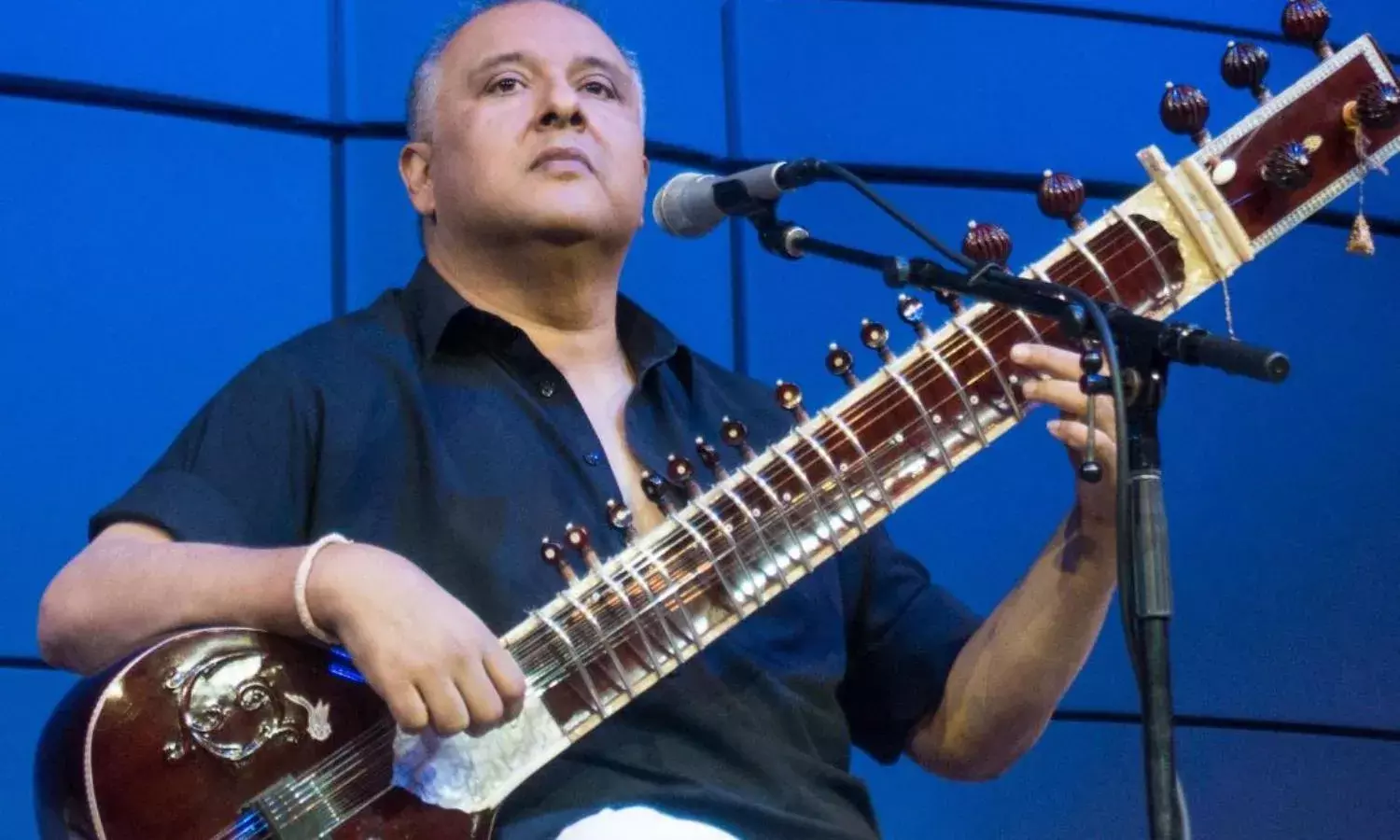
A living legend in the world of Indian Classical music, Ustad Shujaat Husain Khan, needs no introduction whatsoever. As we are all staying indoors, I got the chance to speak to the world-renowned musician who has not let fame or his legacy take over his modesty or polite demeanour. Throughout our candid phone-call, I tried to discover what goes into the making of an exceptional musician—someone who makes a constant effort to reach out to the soul of each of his listeners.
Q. You are known as a fearless collaborator. Please let us know what goes into doing experiments that work for you and your audience.
A. Am I? I’m quite surprised by that tag. I’m an artist who’s somewhat fearful of collaboration. Music partnership in any form often leads to compromise at a certain level. To a large extent, art is a solo profession, and that’s how I enjoy it the most. At the same time, it’s always great when artists with shared interests come together to create something new.
Q. You were born and brought up in a traditional musical environment. How difficult was it to craft your own space and create music that embraces both traditional and modern music forms?
A. It was tough. When you're the son of a big legend, people have very high expectations. All my life has been a bundle of strife to explain who I am and what I feel.
It's been a long journey of ups and downs. It was intentional as well as desirable for me to create my voice and connect with my audience. It was an uphill climb for me to put forth my character and my music. I’m proud to be Vilayat Khan’s son, but my music is quite different, and that is quite natural as well.
Q. How did singing become an integral part of your musical journey?
A. Hehe, I don’t know how singing happened. I’m not a singer, and I don’t know how to sing. I guess it is serendipitous.
Q. What are the most exhilarating and the most painful moments of your journey so far?
A. When people put you down, you feel angry. But you put that frustration to better use by applying it in your musical practice. I have got a lot of love and affection—I’m grateful for that. It feels like a more significant achievement when youngsters look up to me.
My childhood has not been great. What my father gave me was his teachings, but I had to figure out things on my own. I’m a simple man and love playing the Sitar; there would be no country that I have not visited; I have travelled to the most beautiful places. I have a lot to be thankful for, in my life. I have had a blessed life. What is ironic is that my government has not recognized my work as a musician yet.
Q. Did you ever feel that you should have been given the liberty to choose your career or art form?
A. Yes, every child feels that. At some point in time, I may have felt that I wanted to become an actor or a cricketer. But slowly, I came to terms with the fact that I was born to be a musician.
Q. How has music played a role during different phases of your life?
A. My whole life is music. I practice music all the time. Music gives me pleasure, job, source of income—everything. Maybe someone from a different background or profession can talk better about music's role in their life. My whole identity revolves around music.
Q. Please tell us about your favourite musicians and what did you grow up listening to?
A. I grew up when a lot was happening in the music scene. At that time western music bands like Abba and Boney M. were quite popular. Besides Disco music, I used to enjoy Hindi film songs, Ghazals, Folk, Qawali, and of course, Classical. Nowadays, I prefer listening to film music and Qawali. Most of my music is in my head, so I have cut down on listening to music.
Q. Do you think you have added a new flavour to classical music and, in a way, made it more accessible?
A. I think so, sure I have. One part of my concert is pure Classical music which is the world-style development of the raaga. My phraseology and my thoughts about music are unique, and that’s the surprise element. I play very few straight notes but mostly Classical, and light Classical, which is what brings a lot more audience.
Q. Give us a peek into your life beyond your music?
A. I lead a very normal life. I don’t smoke or drink or have paan masala or go to nightclubs. For leisure, we get together with friends for dinner. I love family outings and holidays. I wake up early in the morning and go for a walk twice every day. I prefer simple food and an afternoon nap. I enjoy watching TV and films.
Q. What music do you love playing the most?
A. I relish playing my own, my father’s, and also Amir Saheb’s compositions. Other than that, I like playing the raagas: Yaman Kalyan, Shyam Kalyan, Shudh Kalyan, Jhinjhoti, Malkauns, Lalit, Malhaar, Miya-Ki Todi, Gaud-Malhar, Rageshree, and Bageshri.
Q. What is your message to the people and musicians during this time of crisis?
A. It’s good to stay indoors, wear the mask, and follow all the safety guidelines, but most of all, one should stay as positive as possible. We should not lose hope. Let’s stay optimistic that one day we’ll all be able to meet, greet, hug, and handshake. Keep the faith. Don’t start considering this whole thing as the new reality, as of yet.
Abhishek Talreja is a Delhi-based freelance writer, poet, and journalist.

